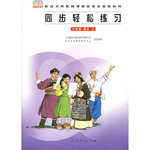题目内容
【题目】We discuss the issue of when to help a patient die. Doctors of our generation are not newcomers to this question. Going back to my internship(实习)days, I can remember many patients in pain, sometimes in coma(昏迷), with late, hopeless cancer. For many of them, we wrote an order for heavy medication—morphine(吗啡)by the clock. This was not talked about openly and little was written about it. It was essential, not controversial.
The best way to bring the problem into focus is to describe two patients whom I cared for. The first, formerly a nurse, had an automobile accident. A few days later her lungs seemed to fill up; her heart developed dangerous rhythm disturbances. So there she was: in coma, on a breathing machine, her heartbeat maintained with an electrical device. One day after rounds, my secretary said the husband and son of the patient wanted to see me. They told me their wife and mother was obviously going to die; she was a nurse and had told her family that she never wanted this kind of terrible death, being maintained by machines. I told them that while I respected their view, there was nothing deadly about her situation. The kidney(肾) failure she had was just the kind for which the artificial kidney was most effective. While possibly a bit reassured, they were disappointed. Here was the head surgeon seemingly determined to keep everybody alive, no matter what.
Within a few days the patient's pacemaker(起搏器) could be removed and she awoke from her coma. About six months later, the door of my office opened and in walked a gloriously fit woman. After some cheery words of appreciation, the father and son asked to speak to me alone. As soon as the door closed, both men became quite tearful. All that came out was, “We want you to know how wrong we were.”
The second patient was an 85-year-old lady whose hair caught fire while she was smoking. She arrived with a deep burn; I knew it would surely be deadly. As a remarkable coincidence there was a meeting for discussion going on at the time in medical ethics(道德). The speaker asked me if I had any sort of ethical problem I could bring up for discussion. I described the case and asked the students their opinion. After the discussion, I made a remark that was, when looking back, a serious mistake. I said, "I'll take the word back to the nurses about her and we will talk about it some more before we decide." The instructor and the students were shocked: "You mean this is a real patient?" The teacher of ethics was not accustomed to being challenged by actuality. In any event, I went back and met with the nurses. A day or two later, when she was making no progress and was suffering terribly, we began to back off treatment. Soon she died quietly and not in pain. As a reasonable physician, you had better move ahead and do what you would want done for you. And don't discuss it with the world first. There is a lesson here for everybody. Assisting people to leave this life requires strong judgment and long experience to avoid its misuse.
【1】The first patient’s husband and son wanted the doctor_____.
A. to save her life
B. to end her life
C. use an artificial kidney
D. to maintain her life with machines
【2】In the early days when a patient had got a deadly, hopeless illness, _______.
A. doctors would inject more morphine into the patient to end his life
B. doctors would turn him away and ask him to go back home and wait for death
C. doctors would write a new order for their medical treatment to ease their pain
D. doctors would discuss their treatment plan with the patient and write down the solution
【3】At the meeting, the author discussed with the students_____.
A. the importance of mercy killing
B. the relationship between mercy killing and ethics
C. the case about an old lady
D. the process to practice mercy killing
【4】The author suggested that doctors_____ before they assist a patient in killing himself.
A. do what they are wanted to do
B. discuss with the others about the decision first
C. be required to do so first by the patient
D. make sure there is no other choice left
【5】Through the two patients mentioned in the text, the author thinks that on the issue of helping a patient die, doctors need to be _________.
A. cruel and cautious
B. experienced and thoughtful
C. pessimistic and determined
D. considerate and optimistic
【答案】
【1】B
【2】A
【3】C
【4】D
【5】B
【解析】
试题分析:文章以一个问题开头:医生应该在什么时候结束病人的生命以减轻病人的痛苦,接着以作者的两个例子说明,作为理智而又经验丰富的医生,不能放弃可以拯救病人的每一线希望,知道最后一线希望也消失时才能采用这种安乐死的办法。
【1】B细节理解题。 由文章第二段They told me their wife and mother was obviously going to die; she was a nurse and had told her family that she never wanted this kind of terrible death, being maintained by machines.可知病人的丈夫和儿子是来传达病人的愿望的,因为她从没有想过这个可怕的病魔,她不想用仪器来维持自己的生命,所以她想要结束自己的生命。所以她的丈夫和儿子是在告诉医生让他结束病人的生命的。故选B。
【2】A推理判断题。由文章开头I can remember many patients in pain, sometimes in coma(昏迷), with late, hopeless cancer. For many of them, we wrote an order for heavy medication—morphine(吗啡)by the clock.可知很多处于痛苦中或昏迷中或是得了无法医治的癌症时,医生们更多的选择是摄于吗啡以此结束病人的生命,从而减轻他们的痛苦。所以选项A正确。
【3】C细节理解题。由文章最后一段可知,这里谈论的是一位85岁的病人,她烧伤严重,所以“我”和学生们开始讨论关于这位老人的情况,在最后一段中I described the case and asked the students their opinion。也可以看出“我”和学生讨论的是老人的病情。故选C。
【4】A作者观点题。从最后一段的最后一句话Assisting people to leave this life requires strong judgment and long experience to avoid its misuse.可知,在作者看来作为医生要尽一切办法来挽救病人的生命,只要还有一线希望,都不能放弃拯救病人,更不能滥用权力。所以作者的意思是在最后的一线希望都没有时,才可以考虑结束病人的生命。故选A。
【5】C 细节理解题。最后一段中Assisting people to leave this life requires strong judgment and long experience to avoid its misuse和As a reasonable physician, you had better move ahead and do what you would want done for you.可知,医生要想结束病人的生命,自身必须要有丰富的经验,还要有理性的思维。Reasonable与thoughtful意思相近。故选C

 同步轻松练习系列答案
同步轻松练习系列答案 课课通课程标准思维方法与能力训练系列答案
课课通课程标准思维方法与能力训练系列答案假设你是李华,你的笔友Jason 对中国文化非常感兴趣,打算来中国参观一些世界文化遗产。请你根据所给信息,给Jason写一封电子邮件,介绍洛阳的龙门石窟。
名称 | 龙门石窟(Longmen Grottoes) |
地理位置 | 位于河南省洛阳市南郊的伊河两岸,离市区12.5公里。 |
开凿时间 | 从北魏至北宋,历经400多年。 |
艺术价值 | ① 是中国古代雕刻艺术的重要组成部分,现存有窟龛(niche)2300多个,造像(image)10万余尊; ② 反映了中国古代政治、经济(economy)、宗教、文化等许多领域的发展变化。 |
注意: 1. 词数100左右(开头和结尾已给出,但不计入总词数);2. 可以适当增加细节,以使行文连贯。
Dear Jason,
I am glad to know you are coming to visit China. I am writing to recommend one of the World Heritage Sites in China — Longmen Grottoes.
_____________________________________________________________________
_____________________________________________________________________
_____________________________________________________________________
I hope you’ll have a good time in China.
Yours,
Li Hua